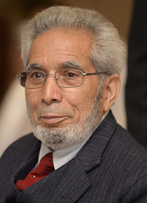Estate Planning: Why You Need to Plan for Your Online Assets
By Saghir Aslam
Rawalpindi, Pakistan

(The following information is provided solely to educate the Muslim community about investing and financial planning. It is hoped that the ummah will benefit from this effort through greater financial empowerment, enabling the community to live in security and dignity and fulfil their religious and moral obligations towards charitable activities)
Make sure you consider your digital assets when creating your estate plan. Taking this step can help give survivors access to online accounts and important digital assets.
While most states have adopted a version of the Fiduciary Access to Digital Assets Act, which governs the fate of digital assets, the law excludes some important online accounts, such as email. And in some cases, heirs, trustees, and executors may not even be aware of the existence of some digital assets.
A clear, comprehensive estate plan that addresses your digital assets can help address those challenges.
What we mean by "digital assets"
Digital assets are defined as assets that exist on the internet or other electronic form, have financial value, are necessary to access financial information, or hold sentimental value. These assets require passwords or other credentials to access. Most digital assets can be grouped into three broad categories:
• Online accounts. These include everything from social media, e.g., email accounts, and financial accounts to utility provider accounts and loyalty programs (such as frequent flyer miles and credit card rewards). Access is typically granted by a user ID and password. Making sure that necessary information is available in a secure, accessible place so that loved ones have access to user IDs and passwords can make life easier in the days and weeks immediately following someone's death.
• Digital assets with sentimental value. These may include Facebook, videos, or online photo albums. "Photos are a huge deal to families. They preserve a memory:'
• Financial assets . Finally, there are digital assets that can hold substantial financial value for your heirs. These might include personally owned websites, accounts tied to online payment providers, digital currency, or unique intellectual property, such as music a composer might store digitally.
In addition to these categories, some people may have online businesses or other digital entities that have value. An estate planning specialist or legal advisor can help guide your next steps with those assets.
How to address your digital assets in your estate plan
Developing your plan requires legal and practical considerations. These steps can help you get started:
1. Inventory your digital assets. Create a list of the websites and apps where you access online accounts and maintain other digital and financial assets. Don't forget to include information for devices- phones, computers, and tablets-that might hold valuable information.
2. Consult your estate planning professional to determine how to handle your inventoried digital assets within your estate plan.
Include account numbers, passwords, or other sensitive information in your last will and testament, as they can become public record during probate, potentially exposing sensitive information.
Update your plan regularly
How often you need to update your estate plan and related documents will vary depending on how active you are online. For some people, reviewing it annually may be enough. Others may need to update it more frequently.
Changing a password, getting a new computer, or upgrading your phone are all good times to review your digital asset inventory and make any necessary changes.
(Saghir A. Aslam only explains strategies and formulas that he has been using. He is merely providing information, and NO ADVICE is given. Mr Aslam does not endorse or recommend any broker, brokerage firm, or any investment at all, or does he suggest that anyone will earn a profit when or if they purchase stocks, bonds or any other investments. All stocks or investment vehicles mentioned are for illustrative purposes only. Mr Aslam is not an attorney, accountant, real estate broker, stockbroker, investment advisor, or certified financial planner. Mr Aslam does not have anything for sale.)

